Key Highlights
- Artificial intelligence is dramatically improving health care by boosting diagnostic speed and precision, leading to better patient outcomes.
- Real-time AI tools streamline clinical practice, minimizing administrative tasks and freeing up more time for patient care.
- AI use cases span personalized treatment plans, advanced medical device integration, and robotic surgery.
- Groundbreaking machine learning breakthroughs are accelerating drug development, including novel drug discovery and protein structure prediction.
- Hospitals and clinics are adopting virtual assistants and automation for patient visits and office tasks, enhancing care delivery.
- Ethical considerations and data privacy challenges must be addressed as adoption of AI increases across the healthcare sector.
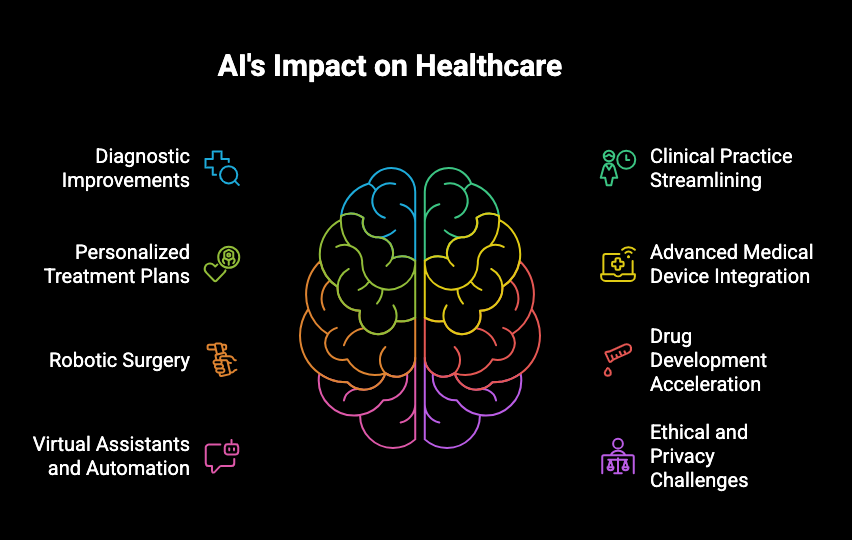
Introduction
Artificial intelligence is reshaping the landscape of medicine and digital health. From faster diagnoses to tailored treatment pathways, AI-powered tools have become an essential part of modern health care. Whether you’re a patient seeking answers or a provider wanting to improve outcomes, the transformation is happening right now. AI has evolved from simple automation to dynamic systems that support clinical decision-making, streamline workflow, and facilitate better communication between health care professionals and their patients. The result is a smarter, more responsive medical ecosystem.
Recent Breakthroughs in AI Transforming Medicine
The evolution of AI in medicine has accelerated remarkably in 2024, fueled by advancements in machine learning. Notably, several Nobel Prizes have recognized foundational breakthroughs in artificial neural networks and protein structure prediction. These innovations benefit the entire healthcare system, powering medical devices and clinical tools that address complex disease pathways.
AI is driving change across health care, improving diagnostic accuracy, expediting drug development, and optimizing patient care. These breakthroughs offer real-time support for clinicians, making it easier than ever to deliver evidence-based medicine.
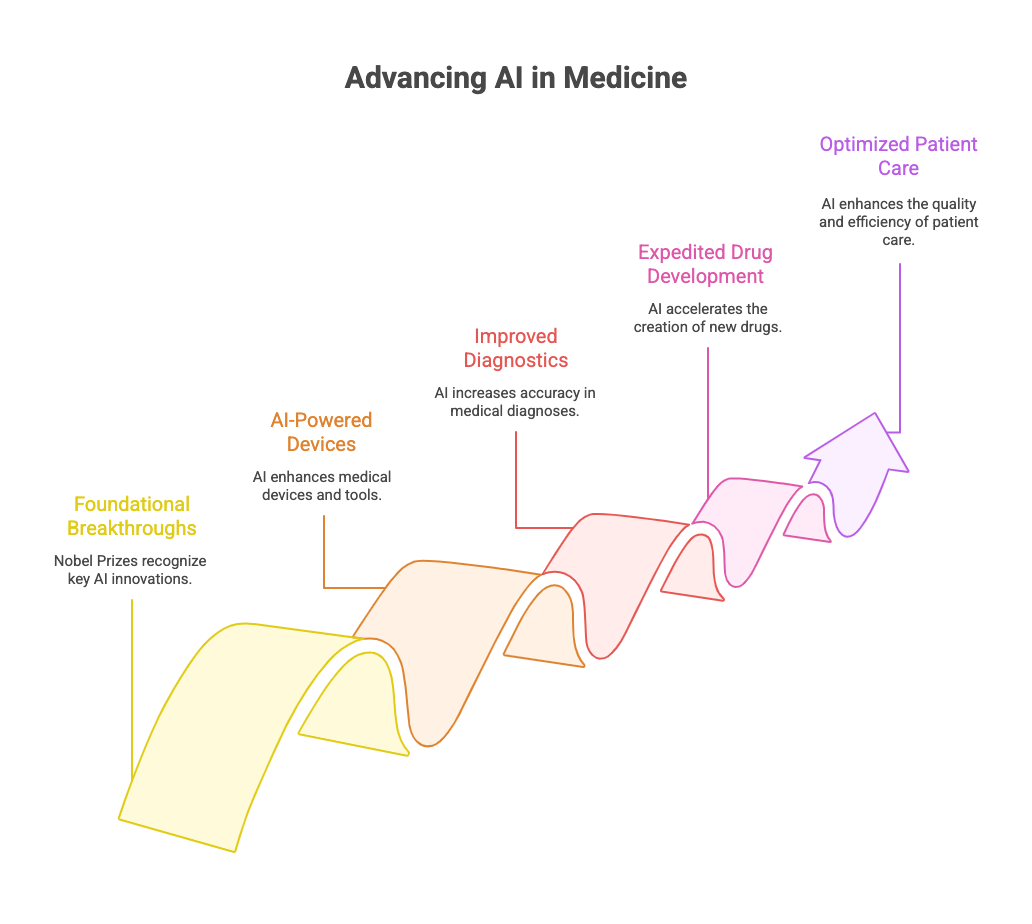
New Era in Healthcare
It is Tuesday, which means it’s News Day! This week brings exciting developments and advancements in the field of artificial intelligence, with significant implications for healthcare. From space missions to chronic disease management, AI technologies continue to revolutionize the way we approach health diagnostics and patient care.
NASA and Google AI Collaboration
One of the most significant updates comes from the collaboration between NASA and Google AI. This partnership aims to integrate artificial intelligence into space missions, providing real-time data monitoring to ensure astronaut safety and mission success. This innovation will enhance the ability of crews to send and receive vital data seamlessly, optimizing both efficiency and outcomes.
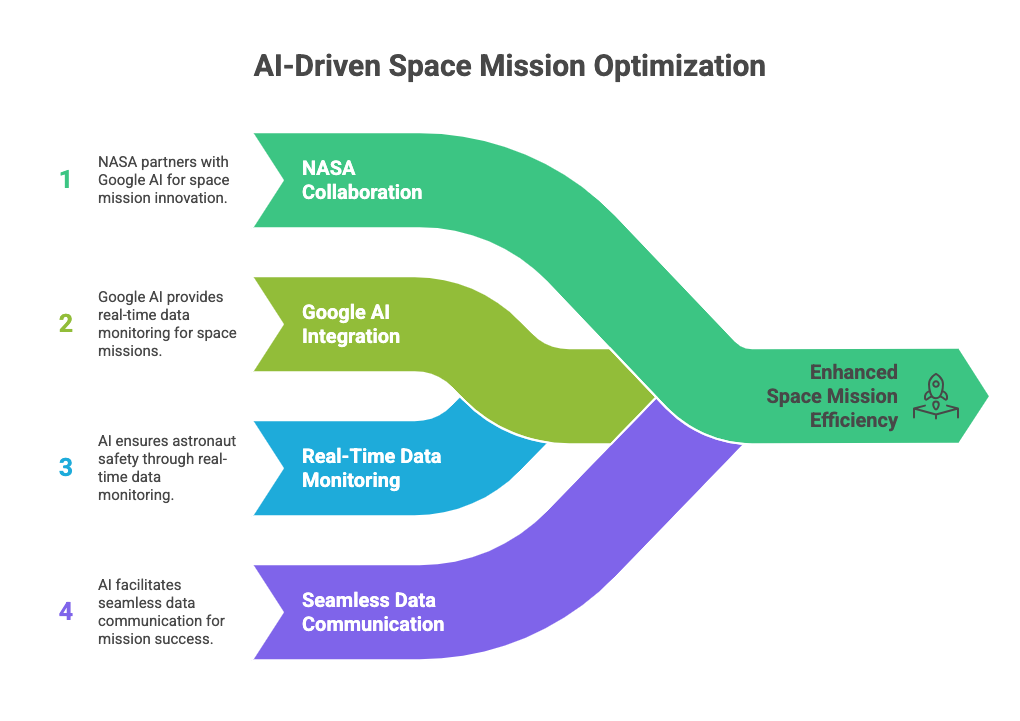
Introducing Chat GPT Model 5
The debut of Chat GPT Model 5 marks another milestone in AI technology. Specifically designed for health diagnostics, this model aims to play a crucial role in managing chronic conditions such as cancer. By offering advanced assessment capabilities, this AI will become an indispensable tool in guiding and supporting both patients and healthcare professionals.
Harvard’s Facial Recognition Advancements
Harvard School of Medicine is at the forefront of another AI breakthrough. Their AI-powered facial recognition software is capable of predicting patient ages and detecting potential diseases before they become critical. This early detection can lead to prompt interventions, enhancing patient outcomes and reducing long-term healthcare costs.
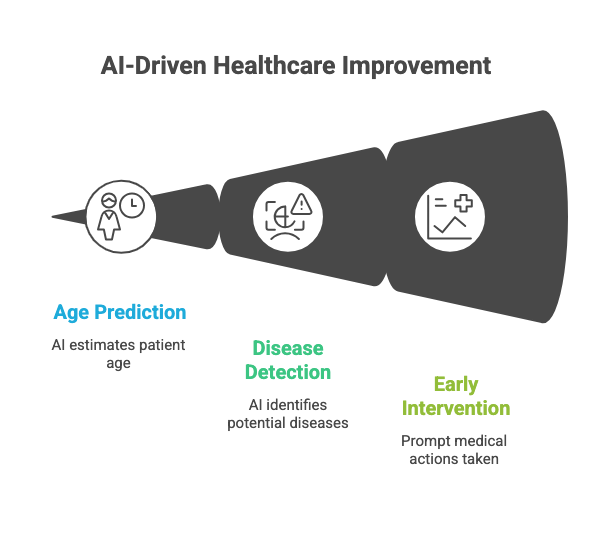
AI in Daily Hospital Workflows
Artificial intelligence has already established a strong presence in early disease detection within hospitals, becoming an integral part of daily workflows. As these technologies continue to develop, they promise to deliver insights and efficiencies that were previously unimaginable.
Wearables and Telehealth: A Future of Accessible Care
AI-driven wearables for chronic disease management are consistently evolving, significantly influencing the healthcare landscape. Coupled with improved telehealth technologies, these advancements increase accessibility and enable quick, comprehensive, and cost-effective care. With these tools, we stand on the brink of a healthcare revolution, where quality care is within reach for all.
In conclusion, the integration of AI into various aspects of healthcare promises to enhance our ability to diagnose, manage, and treat patients effectively. As we continue to embrace these innovations, we look forward to a future where AI-driven technologies are a staple in delivering high-quality healthcare outcomes.
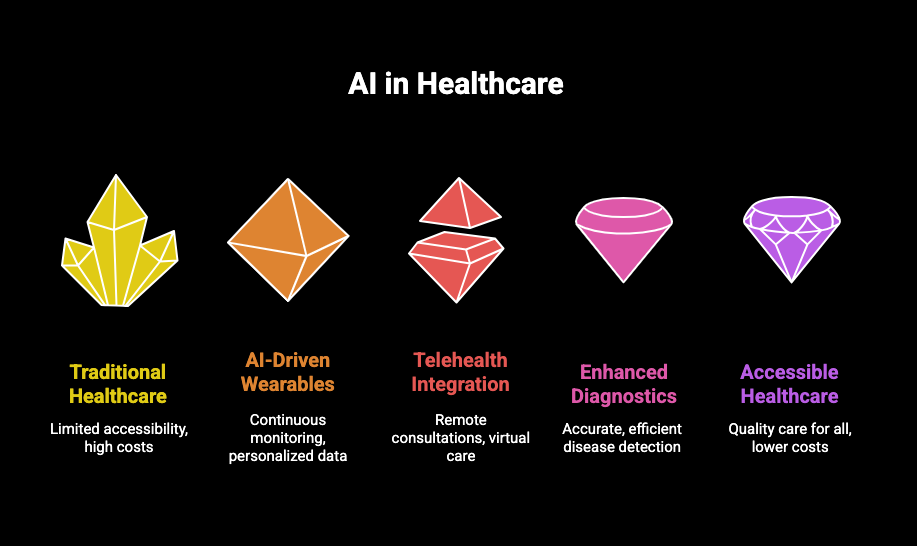
Conclusion
In summary, the integration of artificial intelligence into medicine is revolutionizing the healthcare landscape. With advancements in diagnostic tools, personalized treatment plans, and innovative applications in patient care, AI is enhancing efficiency and improving patient outcomes. Real-world examples highlight how hospitals and clinics are successfully implementing AI technologies, from virtual health assistants to robotic surgery. However, as we embrace these transformative changes, it is crucial to address the challenges of data privacy and the ethical implications surrounding AI. Understanding the evolving role of AI in healthcare will help us navigate this exciting frontier. If you would like to explore these advancements further or have any questions, feel free to reach out for a consultation.
Frequently Asked Questions
How is AI regulated in U.S. healthcare as of 2024?
AI systems and medical devices in U.S. healthcare are regulated by the FDA, which reviews software for safety and efficacy. The agency oversees approvals, ongoing monitoring, and compliance requirements to ensure health care providers use reliable, evidence-based AI solutions.
How are doctors and patients responding to AI in medicine?
Adoption of AI by health care providers is growing as clinicians and patients experience improved efficiency and patient care. Medical education is adapting, teaching augmented human intelligence alongside AI, though human oversight remains essential for optimal clinical outcomes.
What are the main ethical concerns of AI in healthcare?
Ethical considerations include addressing data privacy, minimizing algorithmic bias, and incorporating local context to reduce disparities. Mental health impacts and the long-term consequences of machine reliance in medicine require thoughtful regulation and oversight to protect patients and providers.


